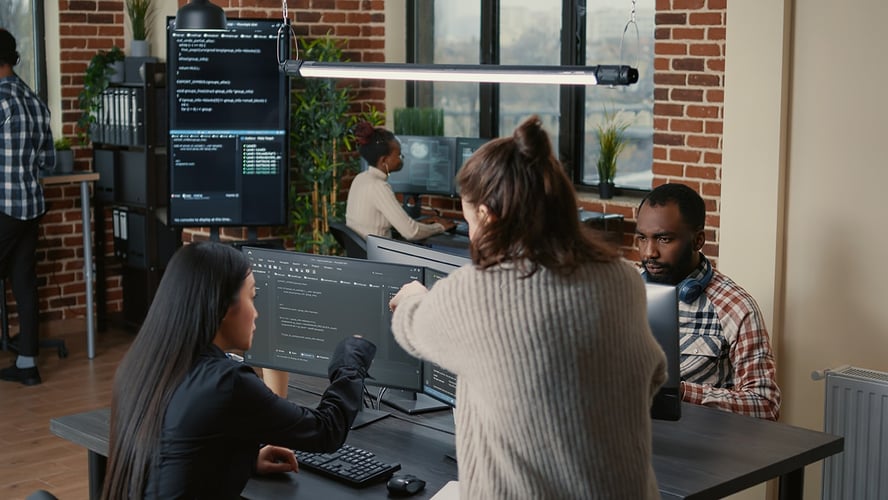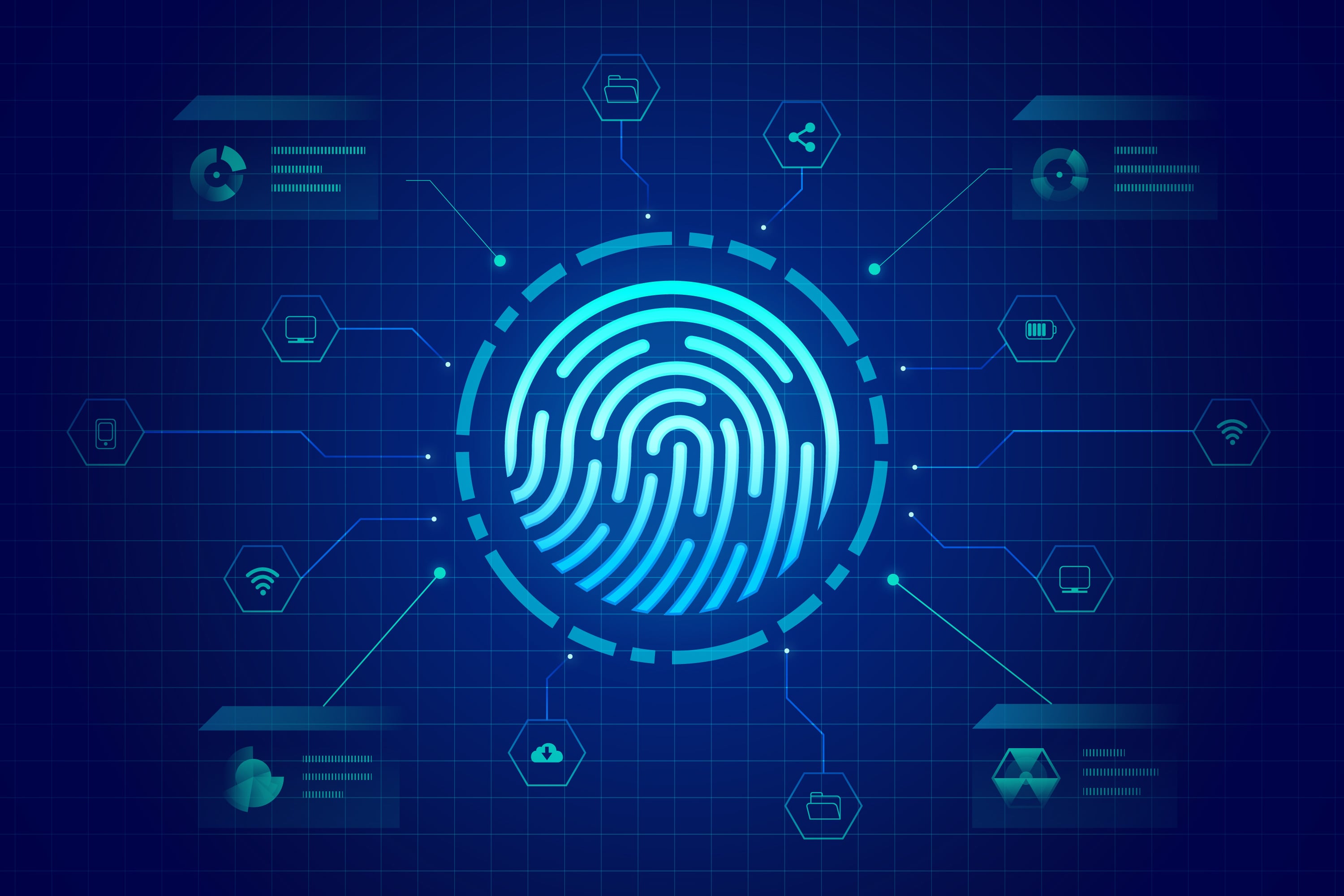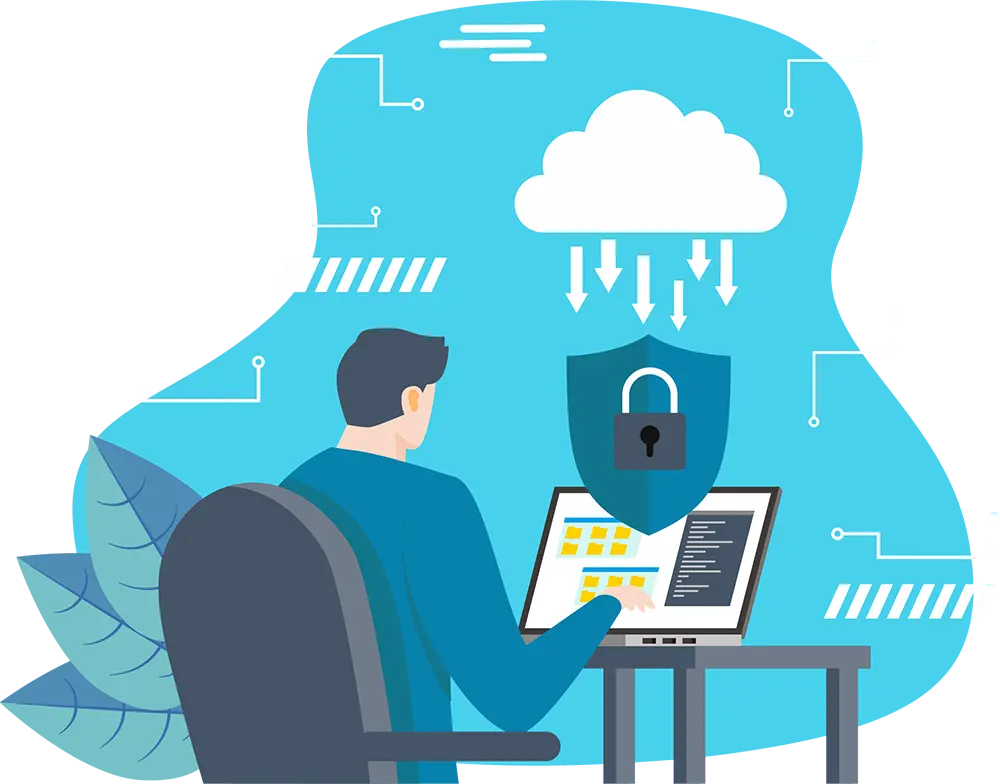Are you searching for an individual or team that's passionate about technology and computer security?
Do you want someone that wants to make a real impact on the safety of your business and customers online?
Well, it seems like you're looking for a cybersecurity analyst!
Cybersecurity is one of the fastest-growing IT fields, and it’s no surprise why. Cybersecurity analysts are highly skilled professionals who protect companies and individuals from cyberattacks and other malicious activities.
A cybersecurity analyst monitors networks and systems for potential security vulnerabilities or threats. They protect your business from cyber risks while developing policies and strategies to keep cyber attacks at bay.
This responsibility includes managing firewalls, conducting penetration tests, ensuring compliance with industry standards, researching new threats, developing security policies and procedures and responding to security incidents quickly. They also help companies identify areas where they may be vulnerable to attack or exploitation by criminals or hackers.
In a general sense, cybersecurity analysts protect your IT infrastructure from cyber criminals trying to get their hands on your confidential and sensitive data.
So as technology continues to evolve at an unprecedented rate, so does the need for cybersecurity analysts.
If you’re thinking about starting a career as a cybersecurity analyst, this article will have everything you need to know involving the role such as what do cybersecurity analysts do, what skills they have, and what their typical day looks like.
What is a cybersecurity analyst?
A cybersecurity analyst is a type of IT professional specialising in IT security. Cybersecurity analysts should understand any intricacies of cyberattacks, malware, and malicious hacker tactics and prevent these attacks from taking down businesses.
But what do cybersecurity analysts do?
The day-to-day responsibility of a cybersecurity analyst involves monitoring networks, identifying potential threats or vulnerabilities, and responding to cyber-attacks. They should be knowledgeable in computer science and must stay up to date with the latest trends to ensure their clients are digitally secured. Cybersecurity analysts also develop strategies for preventing cyber-attacks, create detailed reports about any incidents that have occurred, and give regular presentations about security protocols.
By choosing this exciting field, you will have the opportunity to help protect people’s private information from malicious actors!
What does a typical day as a cybersecurity analyst look like?
As a cybersecurity analyst, their day typically involves monitoring suspicious activity on computer systems while staying up-to-date with the latest cyber threats. They'll also be responsible for performing vulnerability assessments, analysing network traffic logs, and writing reports that outline security risks within the company.
Their job is to quickly identify potential threats and issue warnings about potential breaches or other malicious activities. They'll also be tasked with developing strategies to prevent future attacks by creating secure system architectures that comply with industry standards and regulations.
What are the skills of a cybersecurity analyst?
Cybersecurity analysts are highly trained professionals who use their technical and problem-solving skills to protect networks, systems, and data from malicious attacks. This job requires a specialised and unique skill set that involves a combination of deep knowledge in both areas of information technology (IT) and security.
If you're on the hunt for a cybersecurity analyst, it's vital to understand what skills are necessary for success. Here are some of them:
Good understanding of IT knowledge
Cybersecurity analysts keep up with the ongoing evolution of IT and the trends that go along with it. You should also be well-acquainted with the best IT practices, policies, and processes. They must know how these topics work together to create secure networks and systems. They'll also need to be able to identify any potential vulnerabilities that could arise from these systems and networks to protect them from outside threats.
Having a secure grasp of IT knowledge gives cybersecurity analysts an advantage when protecting a security system. This understanding allows them to develop more complex solutions against cyberattacks and malicious actors. And by staying up-to-date with the latest technology trends, they can stay one step ahead of cybercriminals who are always trying new tactics.
Communication towards non-technical teams
A vital part of this job is effective communication, which is why analysts must develop their communication skills to stay ahead in the field.
Although they can understand IT threats well enough, not everyone will understand the technicalities unless they're explained in laymen’s terms – especially to decision-makers and stockholders. A good cybersecurity analyst will need to communicate effectively to explain the gravity of cyber threats and the strategy to implement and enforce protection throughout the infrastructure.
Communication does not come naturally to everyone, but anyone can improve with practice. Cybersecurity analysts should be adept at relaying complex concepts clearly and concisely in written and verbal forms. They must also be able to explain technical issues in simple language so that non-technical teams can understand them too. Additionally, they must be able to listen attentively and interpret instructions quickly to provide timely solutions when needed.
Creativity & strategy
Creativity is a critical skill for a cybersecurity analyst.
In today's world, as cyber threats become increasingly sophisticated and harder to detect, creativity can be the difference between success and failure in defending against malicious actors.
For a cybersecurity analyst, thinking outside the box is essential to stay ahead of attackers and mitigate potential risks. And since the bad guys are creative in their scamming methods, they need to beat hackers at their own game.
For example, they must develop new strategies, tactics, and solutions that will protect your business from potential threats. This responsibility requires critical thinking skills that go beyond simply following established protocols or using existing tools—it requires creative thinking that allows analysts to find innovative ways of defending against potential cyber-attacks.
Strong attention to detail
Cybersecurity analysts are essential to the safety and security of businesses and government agencies. Strong attention to detail is a must-have skill to combat cyber-related issues. As a business, you should not overlook these vital skills are getting meaner by the day.
Being detail-oriented can go a long way for your security strategy. It’s typically the little things that we leave out that leave us vulnerable. And when the devious IT geeks find those missteps, they won't think twice about wreaking havoc on your system.
An eye for detail allows an analyst to identify potential software or hardware system flaws before they become crucial problems. Cyberattacks can occur through small mistakes that are avoidable with proper attention to detail from an experienced analyst. Analysts can keep data safe from malicious actors by honing this skill set.
This skill can make all the difference in preventing large-scale cyberattacks and reducing the risk of harm to people’s data!
Searching for a Cybersecurity Analyst?
As IT threats increase, companies (especially in the financial and medical industries) needing cybersecurity are also increasing.
If you're a business looking for a team that loves computers, has a passion for establishing defences, and is not afraid to get down and dirty with IT security, reach out to us today. We have a great team of cybersecurity professionals who wrestle with cyber threats on a daily basis.













